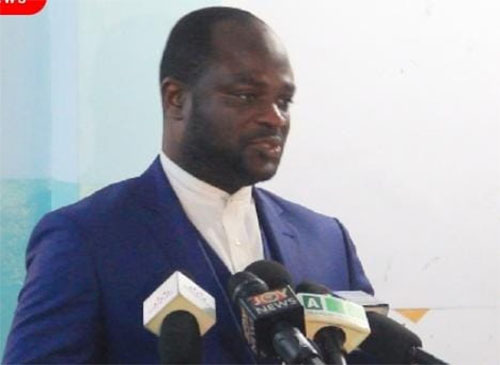Justice Abdulai
A PRIVATE legal practitioner and law lecturer at the University of Professional Studies, Accra (UPSA), Justice Abdulai, has filed an application for review challenging the decision of the Supreme Court, which declared that a Deputy Speaker of Parliament is entitled to vote when presiding in the absence of the Speaker.
He argues that the seven-member Ordinary Bench of the court failed to consider legislative antecedents in Ghana, which consequently led to its interpretation of Articles 102 and 104(2) of the 1992 Constitution that presiding Deputy Speakers are entitled to be counted for a voting quorum, and are entitled to participate in voting in the House.
The apex court, in a unanimous decision, had held that a Deputy Speaker is entitled to be counted for the purposes of forming a quorum under Article 104(1), stating that unlike the Speaker, who must relinquish his or her membership upon being elected as Speaker, both Deputies are required to be MPs and remain so to hold office of Deputy Speakers.
The court held that whilst Article 104(2) of the Constitution provides unequivocally that the Speaker shall have neither an original nor casting vote, no such outright voting disqualification is placed on a Deputy Speaker, whether or not he or she is presiding in the House in the absence of the Speaker.
“Members of Parliament sit in Parliament as elected representatives of their respective constituencies. Parliament operates on the standard democratic principle of equal representation or “one member, one vote,” with matters decided by majority vote. Therefore, to cause a member to forfeit their vote in Parliament merely on account of having to preside over the business of the House in the Speaker’s absence would unfairly disenfranchise not only the presiding member but also their constituents,” the court added.
But Mr. Abdulai, who was the plaintiff in the original case that led to the Supreme Court’s decision, has filed a motion for review urging the court to set aside the decision of the Ordinary Bench on grounds of miscarriage of justice, which results from exceptional circumstances.
His first ground for review avers that the failure of the Ordinary Bench to consider the legislative antecedents in Ghana on the original vote of a Deputy Speaker or any person presiding in Parliament as borne out of the 1957 Constitution, the Parliament Act, 1965 (Act 300), and continuous effect of the Constitution led to its decision.
It also avers that the failure of the Ordinary Bench to consider Article 297(h) of the Constitution and Section 10 of the Parliament Act in interpreting Articles 295(2) and 104(2) led to the court’s decision that Deputy Speakers can vote.
Again, the motion for review argues that the Ordinary Bench failed to consider the saving clause in Article 104(1) in interpreting Articles 102 and 104(2) of the Constitution, which consequently led to it decision. “We submit that the Ordinary Bench in construing Article 104(1) failed to consider the saving words “except as otherwise provided,” which led it to the erroneous conclusion that there is no express disqualification of a presiding Deputy Speaker of Parliament from being counted in determining a quorum of Parliament or casting an original vote.”
It further avers that the Ordinary Bench failed to consider Article 298 of the Constitution, which consequently led to the “wrong assumption of jurisdiction in filling up a perceived gap in the Constitution by means of interpretation; and striking down Order 109(3) of the Standing Orders of Parliament.”
The motion is also challenging the court’s holding of the decision of the Majority Members of Parliament to approve the 2022 budget as valid.
The case is scheduled for April 26, 2022, for hearing.
BY Gibril Abdul Razak


